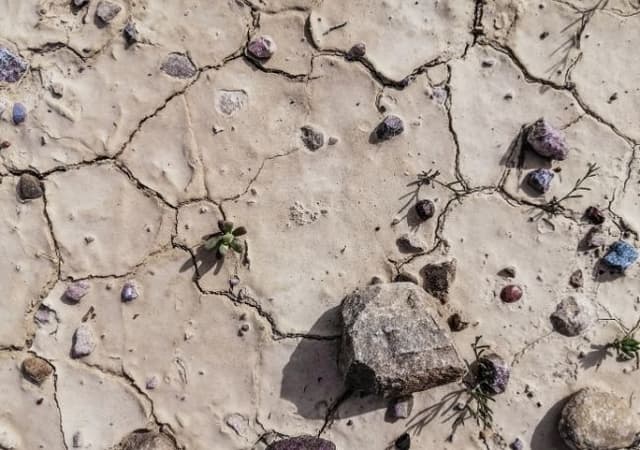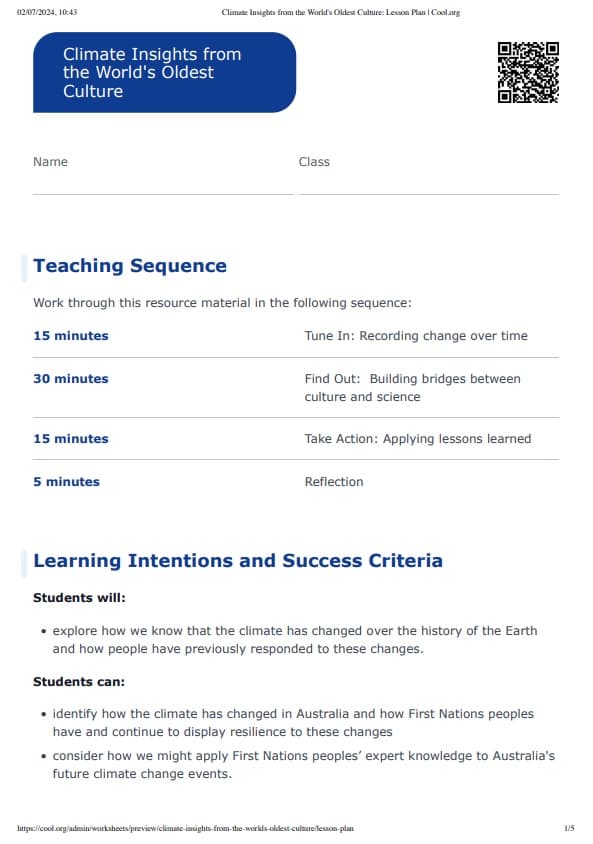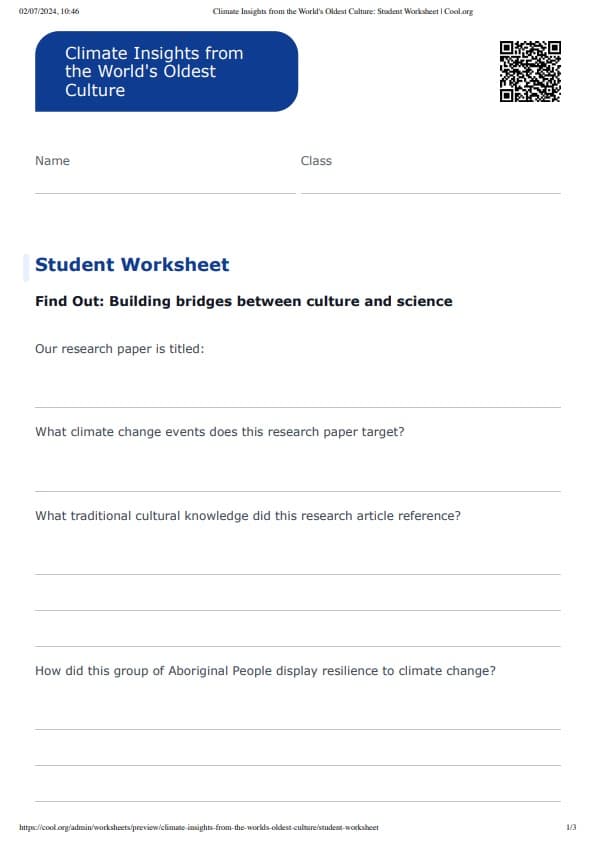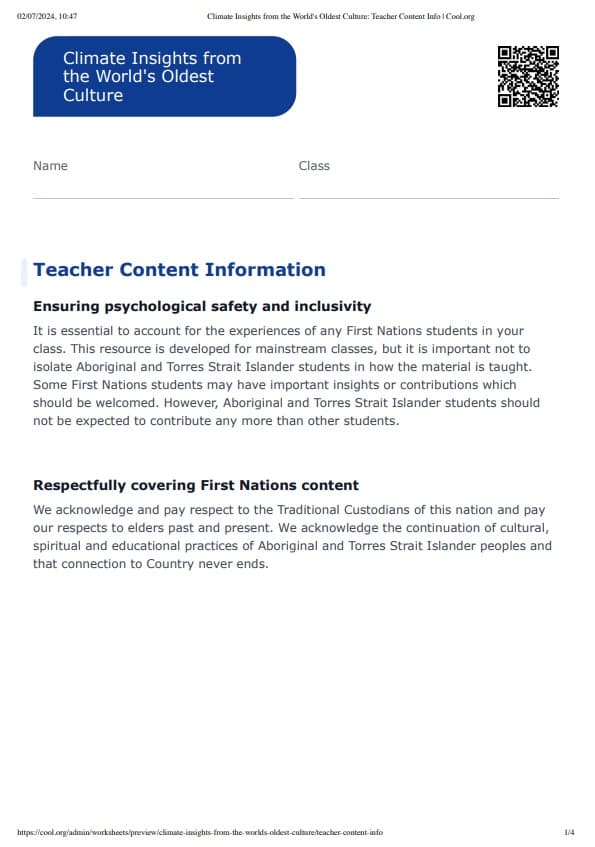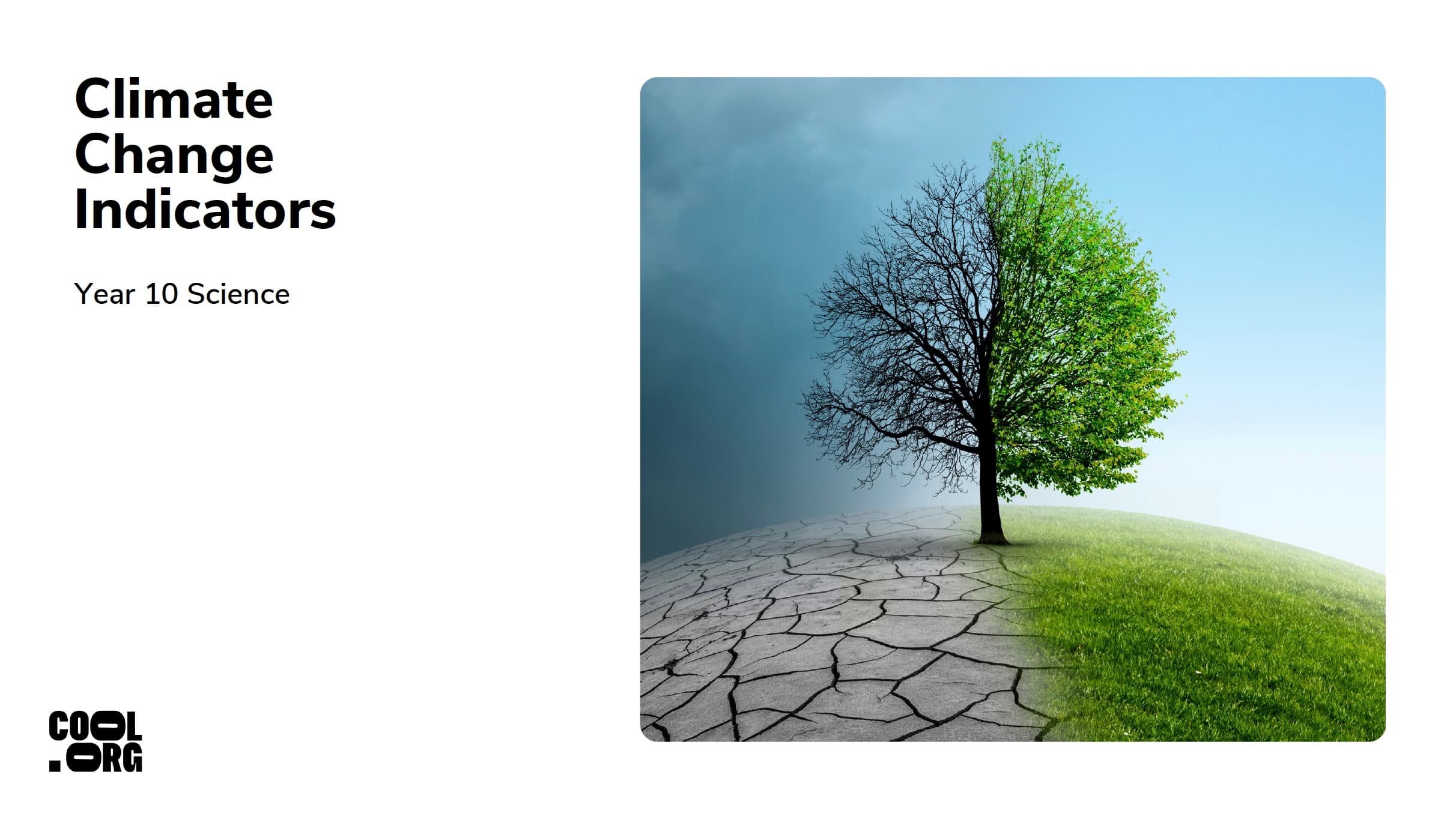Learning intentions:
Students will...
- explore how we know that the climate has changed over the history of the Earth and how people have previously responded to these changes.
Success criteria:
Students can...
- identify how the climate has changed in Australia and how First Nations peoples have and continue to display resilience to these changes
- consider how we might apply First Nations peoples’ expert knowledge to Australia's future climate change events.
